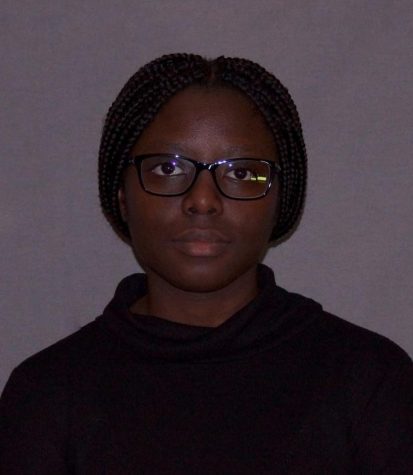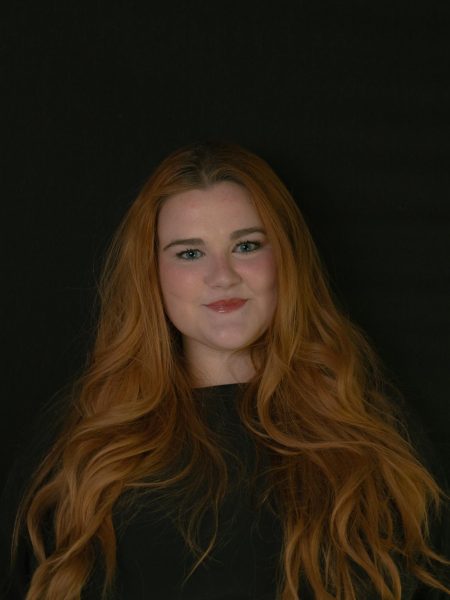The history of women’s representation in media, especially in films, has been relatively flawed and limited compared to men. According to Martha M. Lauzen from the Center for the Study of Women in Television and Film at San Diego State University, only 33% of U.S. top-grossing films featured solely female protagonists. In comparison, 52% of movies featured solely male protagonists.
With roles often being ones of romantic interest to the main character, mothers, helpers and damsels in distress, women tend to be supporting characters. That, however, does not mean these roles are inherently one-dimensional. Rather, they can open the door to possibly exploring the character’s identity and what values they define as important. What truly matters is how the writing fleshes out the part.
Throughout her appearances in the Marvel Cinematic Universe (MCU), Black Widow showed she could hold her own as a spy and an assassin. In “Iron Man 2” and “Captain America: The Winter Soldier,” she supports the titular characters in their missions while having her own objectives. Her actions in “The Avengers” to save New York prove her capability while also presenting the “red in her ledger” and Budapest as plot threads to explore in future movies. These early movies serve as a great setup for what she can do and where she could go.
The depiction of Black Widow falls flat in “Avengers: Age of Ultron,” largely due to the bad writing that plagues the movie. Her main storyline in the film centers around a newfound romance between her and Dr. Bruce Banner, or the Hulk. Their connection is first hinted at through her ability to calm Hulk through a lullaby, and the two appear to bond over their troubled pasts in a scene discussing their inability to have children.
The way the scene is framed with its dialogue seems to imply that Natasha feels as though she is a monster because she cannot have children, resulting in the character seemingly being reduced to whether she can be a mother or not. What could have been an interesting storyline about her loss of agency due to the torture she endured in the Red Room and its lasting effects is instead muddled by awkward writing. As a result, a moment that could have been powerful is ruined because of its lack of clarity.
Black Widow has the luxury of having multiple films to develop, as seen in subsequent MCU films like her solo film, which was arguably released at the wrong time. Other female characters do not, which makes how they are portrayed even more important to nail. With the low volume of women as major characters and people working behind the scenes, the need for better writing of these characters is immense. Why reduce her when she is so much more?
Even with multiple outings, a character may always be seen as a plot device. Padmé Amidala from the Star Wars prequel trilogy exemplifies this. As a senator and a former queen, she tries to resolve the crisis plaguing the galaxy through diplomacy, believing a peaceful resolution can be reached. Even after facing an assassination attempt and constant bureaucratic obstacles, she remains idealistic with a strong sense of justice. Unfortunately, much of this is not remembered due to her being mainly viewed as the catalyst for Anakin Skywalker’s turn to the dark side.
The concept of a romance the audience knows is doomed to fail has potential because the result is known, but what leads to its failure? The trilogy’s poor execution of ideas and awkward scenes like the infamous sand scene hampers their romantic development. Their relationship is mind-boggling with how wooden it feels while being rushed at the same time. Yet, deleted scenes exist that add more depth to their connection and show Padmé more as a political figure, with one canonically being the birth of the Rebellion itself.
While they may contain some of the trademark awkwardness associated with the trilogy, passion is present. Many ideas and plot threads are not touched upon or fully developed due to bad execution and writing. Padmé had the chance to make an even bigger impact in the trilogy and franchise as a whole through her role in the creation of the Rebellion as well as being the catalyst for the Empire’s eventual rise. Yet, the handling of her character and the trilogy as a whole was not as good as it could have been, with one of her biggest moments being removed. Why reduce her when she could be so much more?
Great female characters do exist, and many more can be created. Black Widow and Padmé’s stories will continue to be adapted through comics, shows, novels and more due to the franchises they are from. What about the characters who do not have the opportunity? What is wrong with wanting more care and consideration of what she could be if the writing and execution supported her more? She deserves better. She is much more than what was given.








